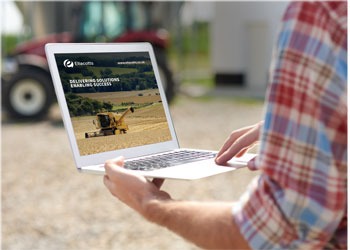From 1 April 2019, Making Tax Digital (MTD) is mandatory for VAT registered businesses with a taxable turnover above the VAT registration threshold of £85,000.
Who needs to be compliant?
Only UK VAT registered businesses with a turnover above £85,000 will need to keep digital records and submit VAT returns to HM Revenue & Customs (HMRC) using MTD compatible software.
If after being required to comply, VAT taxable turnover falls below the VAT registration threshold, MTD still applies, unless the business deregisters from VAT or meets one of the other exception criteria, such as insolvency.
The deadlines for sending VAT returns and making payments are not changing.
The only exception is for a very small minority of businesses with more complex requirements for which HMRC are deferring the deadline to 1 October 2019.
Are you eligible for deferral?
For those that have been deferred MTD becomes mandatory from October 2019.
Deferral covers:
- Trusts
- ‘Not for profit’ organisations that are not set up as a company
- VAT divisions, VAT groups
- Public sector entities required to provide additional information on their VAT return (Government departments, NHS Trusts)
- Local authorities
- Public corporations
- Traders based overseas
- Those required to make payments on account and annual accounting scheme users
 What is classed as ‘turnover’ for VAT purposes?
What is classed as ‘turnover’ for VAT purposes?
Turnover for VAT purposes often does not include rental income from residential lettings or subsidy receipts that may be classed as exempt for VAT purposes. If your farm income, excluding Basic Payment and non-VATable rental income, is below the threshold then you are NOT required to file your VAT by MTD. However, you will need to be compliant in future, likely by 1 April 2020.
If your annual turnover is near the threshold you should monitor this in line with HMRC guidelines.
If you are selling machinery such as a tractor then this sale could push you over the MTD threshold. It is therefore important to keep an eye on your taxable turnover on a rolling twelve-month basis
Do you know what you need to do?
MTD is mandatory for VAT periods starting on or after 1 April 2019 so this means the first filing is either for the month April 2019 or for the quarter ended June 2019.
What classifies as ‘digital’?
Digital means that records need to be maintained in a format which can be directly linked to HMRC when submitting VAT returns. There are a number of Making Tax Digital compatable software providers. Many businesses are already using software and these providers are doing as much as they can to assist users upgrading to be MTD compliant. We are helping clients do this and we can help you.
Are spreadsheets compliant with Making Tax Digital?
Those using spreadsheets can continue to do so and file using bridging software. The spreadsheets need to contain the transaction data and not simply the figures to populate the nine boxes on the face of the VAT return. There are many bridging software applications available, and here at Ellacotts, we have an in-house bridging software which we can use to file your VAT return on your behalf.
Are manual records compliant with Making Tax Digital?
These will not be compliant with MTD as they are not in a digital format. If you are using manual records, we can help set you up on spreadsheets or compatible software.
For the first year, HM Revenue & Customs (HMRC) will allow a soft-landing period for businesses.
Why should you change to digital accounting software?
Although this change may be daunting, keeping digital records will also bring along with it many benefits. Farmers can easily see what parts of the business are most profitable, where costs need to be cut and how much money is owed to and from the business, which greatly helps cash flow.
Many business owners who have taken the leap to convert to a digital system have said they would never go back due to the ease of use, time saved and the greater control they have over business finances.
Ensuring your business is compliant with MTD is also a great opportunity to get the younger generation more involved in the business.
Will ‘splitting’ the business mean we avoid having to become MTD compliant?
Some businesses have considered ‘splitting up’ certain parts of their business. For example, splitting up the arable enterprise and livestock enterprise, to reduce the turnover so it falls below the £85,000 threshold in the hope that they will no longer need to be MTD compliant. This is unlikely to work- the enterprises will still have financial, economic and organisational links and therefore HMRC will identify this as one business.
Can I still keep different sets of records for each enterprise?
You can still maintain separate records for each enterprise in order to track income and expenses accurately and to monitor profitability.
When choosing an MTD compliant software, it is vital to consider which will one is most suited to the individual needs of your business. At Ellacotts we have a dedicated team of cloud accounting experts who can help you find the right software and transfer your manual records onto it.
If you would like to find out more, please contact Zoe Keys on zkeys@ellacotts.co.uk or 01295 250401. We are here to help you ensure you’re Making Tax Digital compliant.

 What is classed as ‘turnover’ for VAT purposes?
What is classed as ‘turnover’ for VAT purposes?